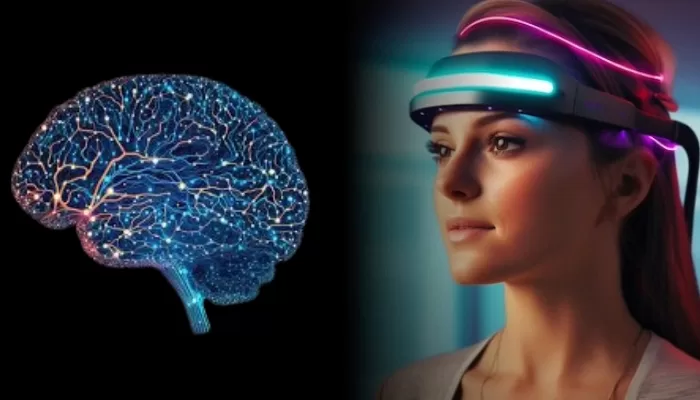Health
From Science Fiction to Reality: The Rise of Wearable Neurotechnology

- Wearable neurotechnology is revolutionising mental health monitoring by giving real-time data on brain activity and cognitive functioning.
- The industry is quickly expanding, propelled by technological improvements and rising demand for novel health solutions.
- These gadgets allow for early diagnosis of mental health disorders and personalised therapies, which improves general well-being.
In recent years, the combination of healthcare and technology has resulted in an exciting new field: wearable neurotechnology. As the desire for novel health solutions rises, wearable neurotech gadgets emerge as game changers, providing a new way to monitor and improve brain health. This article examines the current state of the medical technology market, the opportunities given by wearable neurotech, and the possible impact on individuals and healthcare institutions.
The Emergence of Wearable Neurotechnology
Wearable neurotechnology refers to body-worn gadgets that monitor brain activity and cognitive functions. These devices use modern sensors and algorithms to collect data, giving users insights into their mental health and cognitive performance. From brainwave monitors to products that encourage relaxation and better sleep, the spectrum of applications is fast growing.
The global neurotechnology market is expected to grow significantly, owing to technological advancements and an increased focus on mental wellness. According to industry reports, the wearable neurotech market could reach new heights as both consumers and healthcare providers recognise the importance of monitoring brain health.
Addressing Mental Health Concerns
Mental health difficulties are an increasing concern, with millions of people worldwide suffering from disorders including anxiety, depression, and cognitive impairment. Traditional diagnostic and treatment procedures frequently fail, necessitating the development of novel treatments. Wearable neurotech devices can give real-time data, allowing for early detection and intervention of mental health conditions.
For example, a new study from Johns Hopkins University spotlights a wrist gadget that monitors daily activity patterns and could be used as an early warning system for Alzheimer’s. By continuously monitoring changes in behaviour, these gadgets may alert carers and healthcare experts to possible problems before they become critical.
Advancements in Technology
The development of low-cost, user-friendly neurotech products is a crucial element driving market expansion. Individuals now have access to sophisticated monitoring technologies that were previously only available in clinical settings, thanks to the development of tiny sensors and mobile applications. These innovations make it easier for consumers to monitor their mental health and provide useful insights.
AI advancements expand the capabilities of wearable neurotech. AI-powered algorithms can analyse large amounts of data to uncover patterns and trends that might otherwise go undetected. This feature creates new opportunities for personalised health interventions by allowing users to adjust their approaches to their unique needs.
Competitive Landscape
As the medtech industry embraces wearable technologies, competition among companies grows. Established firms engage in R&D to improve their offers, while startups emerge with unique solutions suited to certain markets. Collaboration between technology companies and healthcare providers is becoming more widespread, resulting in solutions that combine technical expertise and clinical knowledge.
To remain competitive, businesses must traverse complex regulatory frameworks while ensuring that their goods meet demanding safety and efficacy requirements. Adapting to these difficulties will be critical for maintaining market share and increasing consumer trust.
Future Opportunities
The future of wearable neurotechnology looks promising, with several potential for expansion. As people become more aware of mental health difficulties, they look for solutions that allow them to take charge of their health. Wearable technologies that offer continuous monitoring and feedback are well-positioned to address this demand.
Furthermore, integrating wearable neurotech with other health technologies, such as telemedicine and health applications, creates new chances for innovation. Users can receive a comprehensive view of their health by merging data from several sources, resulting in more informed decisions and better outcomes.
Wearable neurotechnology is transforming the medical technology sector. As technology advances and public awareness of mental health grows, these gadgets give unparalleled opportunities for both consumers and healthcare providers. As the sector evolves, it will be amazing to observe how these advances affect people’s lives all across the world.



















































